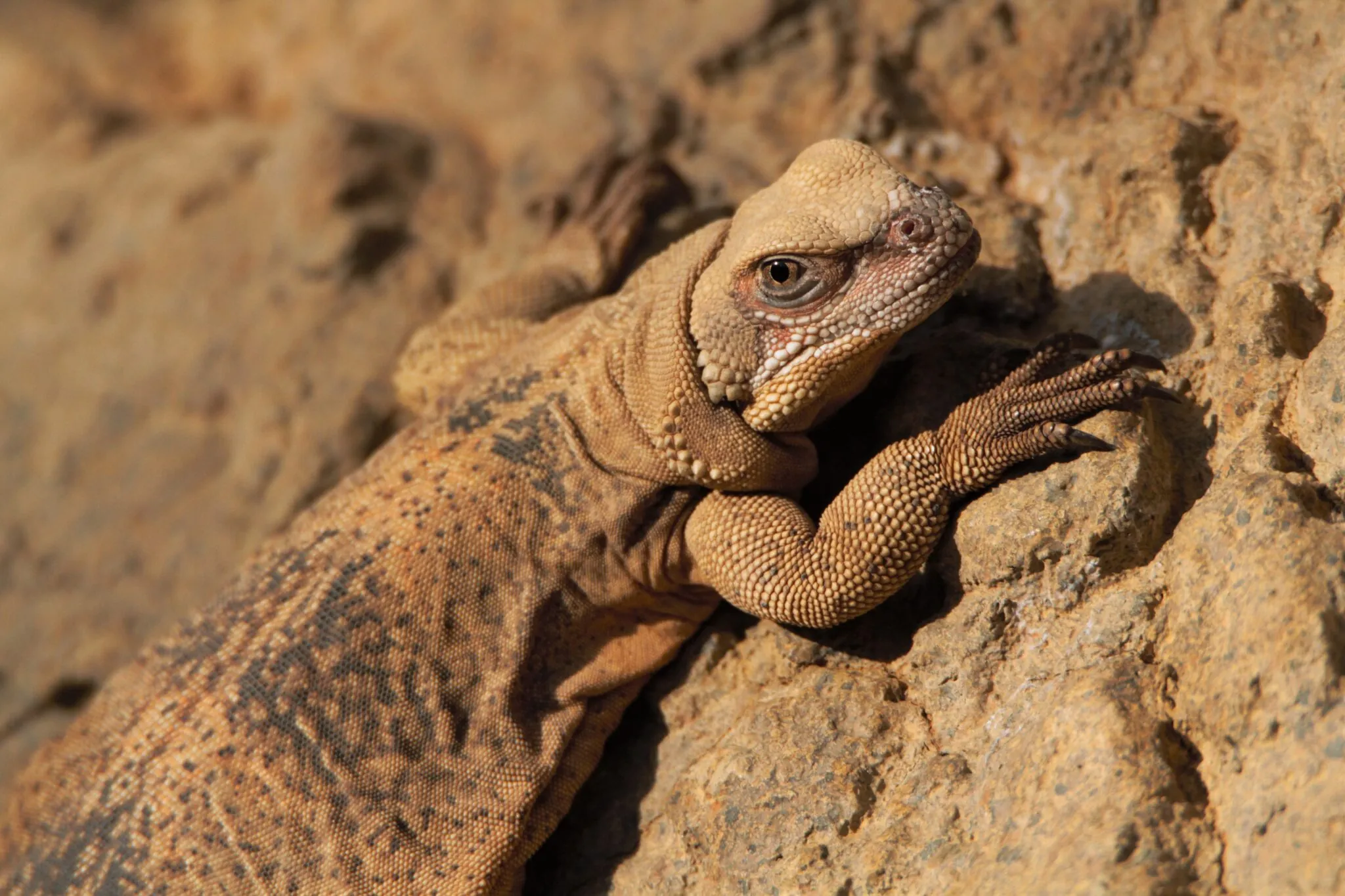The Indianapolis Zoo is closed on Dec. 24 & 25. We will reopen on Thursday, Dec. 26, at 2pm, with Christmas at the Zoo starting at 5pm.
-
Menu
- Plan Your Visit
- Meet The Animals
- Check Out Events
- Memberships
- New in 2025 - Giant Tortoise
- Christmas at the Zoo
- About The Zoo
- Support the Zoo
- Conservation
- Education
- Groups & Private Events
- Zoo News
- Contact
- Zoo Store
- Indianapolis Prize
- Global Center for Species Survival
- Schedule
- Donate
- Membership
- Tickets

- Plan Your Visit
- Meet The Animals
- Check Out Events
- Memberships
- New in 2025 - Giant Tortoise
- Christmas at the Zoo
- About The Zoo
- Support the Zoo
- Conservation
- Education
- Groups & Private Events
- Zoo News
- Contact
- Zoo Store
- Indianapolis Prize
- Global Center for Species Survival

Common Chuckwalla
Sauromalus ater
About
Chuckwallas have a rather round physique with a fleshy neck. These lizards make their lives in the dry, rocky habitats of the western U.S. and Mexico. They feed on leaves and other plant material by day and shelter in rock crevices overnight. If they’re threatened by a predator, they can hide in a crevice and inflate their lungs, which wedges their round body into the rocks so they’re hard to catch! The loose skin around their necks helps males bob their heads to strut their stuff, which can ward off another male or impress a female for mating. The rest of the time, they bask in the sun to stay warm.
Chuckwallas breed in the spring or summer, and the female lays up to a dozen eggs or more in an underground nest. She guards them for about a month until they hatch and head out on their own without mom. Chuckwallas can live for 10 years or more.

Conservation
Common chuckwallas are not threatened with extinction, but they need healthy habitats with plenty of food to survive. Some are also collected for people to keep as pets. Always do your research before adopting a new pet to make sure you can meet its needs for the entirety of its life.
WHERE ARE THEY AT THE ZOO?

